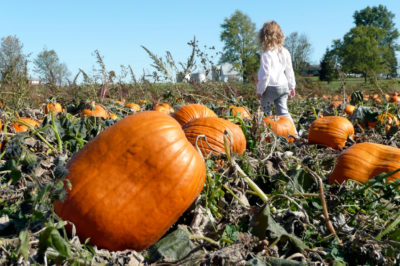Summer is over. Leaves are falling, and the weather is beginning to get a little cooler. While many of us are hanging up the shovel and throwing in the trowel, so to speak, it’s not quite “game over” time in the garden. Not just yet. There are some end-of-season chores you really should perform in your garden before you take a long winter’s rest.
Cleaning up your garden now will save you time come spring. Even better, performing a few easy maintenance chores now will help guarantee good soil conditions for next spring’s planting. Perform these chores now to ready your garden for next year.
1. Clean up the garden area in general.
Remove any forgotten or rotten veggies and fruit from the garden. If they are not diseased or insect-ridden, you can throw them in your compost pile. Throw away any diseased plants, or plants that are showing any possible evidence of disease. Tomato, potato, and squash plants are extra-susceptible to diseases, so check these plants carefully. Do not put diseased plants in your compost pile. Instead, bag them up and discard in the trash.
Next, pull up the dead and dried-up plant matter. Rake away old or dead plant debris. Doing this simple chore will keep diseases like powdery mildew away, and will help deter insects from overwintering in your garden. Getting rid of dead debris means you give insects fewer places where they can overwinter and hide out until spring.
If you use raised beds or square-foot gardening boxes, go ahead and edge around the sides of the bed or box. It’s best to deal with intruding weeds now so you don’t have an overgrown mess around your boxes to deal with later on. Remember, many weeds go to seed in early fall, so by plucking them up and cleaning them out now, you really are saving yourself a great deal of work before next spring arrives.
At our house, we actually mow down certain parts of our garden. This may sound a little strange, but it works, and helps make the cleaning up a lot easier. Just make sure you aren’t mowing over any large, woody stems, or material that may damage the blade of your mower.
Tip: Don’t forget to clean-up your annuals unless you want them to go to seed for next season.
New Fall Garden Kit Helps You Extend Your Growing Season!
2. Cover with mulch.
After you’ve cleaned up the general garden area, finish it off by covering the ground with a light layer of good quality mulch. You can use unsprayed grass clippings, shredded leaves, or straw. This will help maintain soil quality over the fall and winter.
Tip: If you are using leaves as a mulch, make sure they are shredded first, and don’t apply them too thickly. Leaves can easily become matted, like a blanket, when applied too thickly. This can actually harm your soil because it won’t allow air to circulate properly and can harbor disease. As long as you’re using a thin layer of shredded, dried leaves, you’ll be just fine.
3. Consider planting an off-season cover crop.
Cover crops aren’t just for large-scale farms. They work just as well for home gardeners, too.
If you have problems with soil compacting, are overrun with weeds, or you have unhealthy and tired soil, this simple step can make all the difference in your garden next spring. Planting a cover crop can help loosen the soil and replenish necessary minerals your plants need.
Which cover crop should you plant? It all depends on where you live and what you are growing during your heavy-growing seasons. Clover, rye, buckwheat, sorghum, and field peas/oats are just a few options. You should check with your local agricultural extension office for the best cover crops for your specific climate and location.
4. Keep composing!
This fall and winter, you will want to keep adding fresh leaves, grass clippings, and organic waste to your compost pile. Make sure to turn your compost at least once a month, even during the cold winter months. This will keep it “cooking” so that you’ll be ready to use it in the spring and summer.
Making your own compost is one of the best ways to save money in your home garden. Don’t have a compost bin? Then consider it a fall and winter chore to make one for yourself. They are easy to build and will reward your plants with healthy organic matter each and every season!
Performing these four simple chores now will save you plenty of time and energy come spring. Give your garden a little TLC now, and reap the benefits in next year’s harvest.
 Off The Grid News Better Ideas For Off The Grid Living
Off The Grid News Better Ideas For Off The Grid Living





